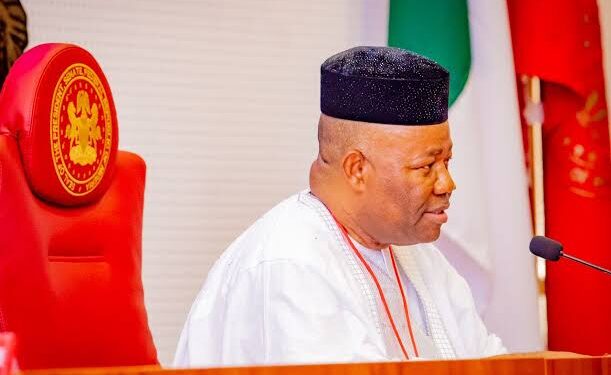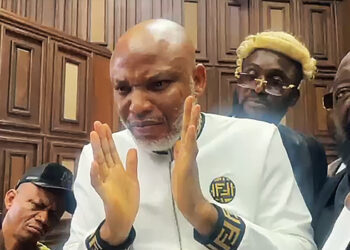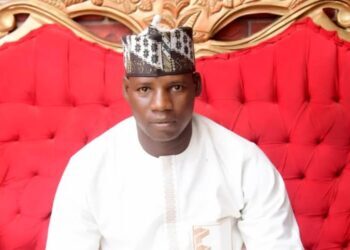The News Agency of Nigeria (NAN) reports that this followed the adoption of the report of the Committee on Appropriations on the bill.
The report was presented by Chairman of the Committee, Sen. Solomon Adeola (APC-Ogun).
NAN reports that highlights of the passed 2025 appropriation bill indicates an aggregate expenditure of N54.9 trillion, statutory transfers of N3.6 trillion, with recurrent expenditure put at N13.6 trillion.
While the sum of N23.9 trillion was earmarked for capital expenditure, debt servicing was put at N14.3 trillion, fiscal deficit N13.8 trillion, while 1.52 per cent was approved as deficit and GDP.
Olamilekan, while presenting the report, said that the senate debated the general principles of the bill on Dec. 19, 2024.
This, he said, had resulted in the second reading of the bill after which it was referred to his committee for further legislative action.
The senator said that the initial proposal of the executive was N49.7 trillion.
He, however, said while processing the bill, the joint committee on appropriations met the president’s economic team to discuss the revenue projection and expenditure of the appropriation bill.
“After series of meetings, the Committee on Finance, in conjunction with our committee, sourced for additional revenue from some revenue-generating agencies,” he said.
Adeola said that the additional fund was made possible because of the increase in revenue by some of the revenue-generating agencies.
He further stated that some agencies of government provided funds to take care of critical needs.
The lawmaker said that the upward review of the budget from N49.7 trillion to N54.9 trillion was to cater for the difference between the details and the bill, procurement of vaccines and additional funding to some government agencies.
“The joint committee worked harmoniously with the leadership of the National Assembly and the executive arm of government in the processing of the bill.
“This ensured maximum collaboration of the two arms in the utilisation of additional revenue projection.
”This is to improve the funding of some critical projects which could not be adequately funded in the budget proposal earlier submitted by Mr President due to funding constraints,” he said.
Adeola said that the 2025 appropriation bill was presented late as against the 2024 appropriation bill.
He urged the executive to present the budget to national assembly not later than three months before the beginning of the next financial year.
“This will help return the country to the January-December budget circle,” he said. (NAN)











